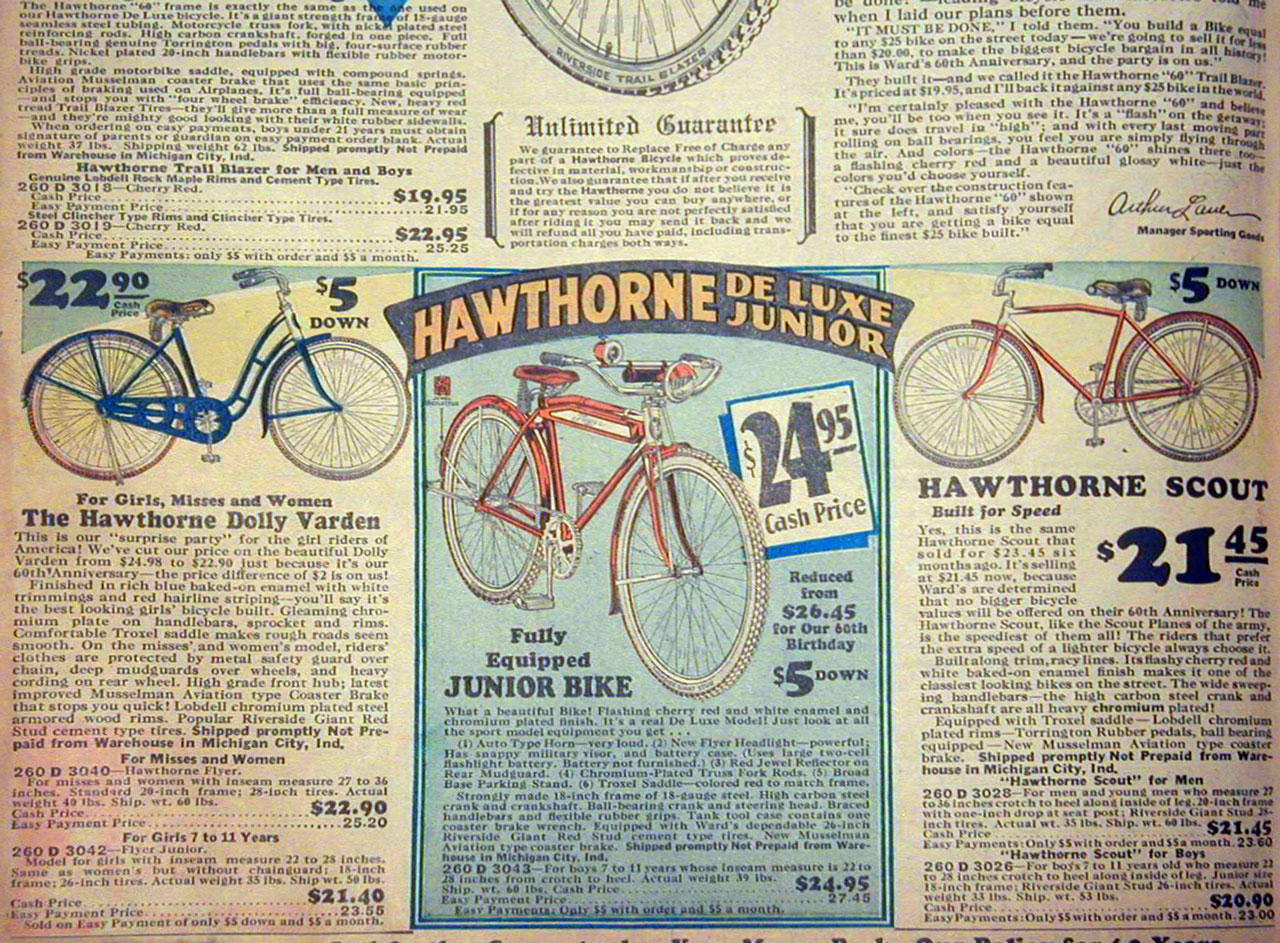Growing up, I didn’t need the Internet. Instead, I had a Montgomery Ward catalog. Not only could you use it to find and order just about anything made, but you could break one or two of the Ten Commandments within its pages.
Back in the day, we considered three things sacred: God, country and the Montgomery Ward catalog. Emblazoned on its cover was the proclamation “Largest Mail Order Business in the U.S.—Supplies for every Trade and Calling on the Earth.” It hawked the world’s goods, everything from fashions to farm implements to something called “crockery.”
You could even buy a house from the catalog. In rural America, we didn’t say “Montgomery Ward” but its nickname, “Monkey Ward.”
This catalogue was unique in that on almost every page, the company divided its products into three categories: good, better and best. If you wanted a suit, you would see they offered three different types: the good suit for $10, a better suit for $15 and their best suit for $20.
If you wanted a bicycle, you could get a good one, which was a plain, ordinary bike, or a better one with three speeds or the best with 10 speeds and hand brakes. But I always wanted the best.
No doubt I was enticed by the words the catalog writers used. The description for the best bicycle included: “our heaviest-gauge steel,” “the fastest bicycle ever made,” “welded, not bolted,” “striking two-toned paint,” “secure handle grips” and “brilliant front and rear reflectors.”
The more I read, the more I wanted. The good bicycle was just that. There was nothing wrong with it; it wasn’t the best.
But wanting the best wasn’t the real problem. We all want the best for our families.
I want the best for my children, my grandson, Titus, and the students I work with. I work hard to give them the best. But I couldn’t afford the Monkey Ward catalog’s best, so I faced a dilemma: Get what I wanted or what I could afford?
It doesn’t take long to see that today’s world has the same problem. The real question should not be, “Do I want good, better or best?” but “What do I need, and what can I afford?”
Do I really need all the extras on my bicycle? Will streamers flying from the handle bars and hand brakes help me get from point A to point B any better? I don’t think so.
I think we have mixed up good, better and best with wants and needs. What I want and what I need are two different things. Do I really need to pay twice-to-three times as much for a clothing item because it has a designer label? Is such a label a need or a want?
We have become a nation that is best-poor. We hock the future and put ourselves into bondage with overwhelming debt so we and our children can have the best.
And guess what? The best doesn’t make us better. What is best for children is to learn how to have financial freedom and live below their means so they can have resources to bless others.
A young couple came into our office this week. They have served as missionaries with our organization and are getting married soon. They don’t have much of what this world offers, but they have learned to be satisfied with the good.
She works at three jobs to earn extra money for the wedding. As we visited, they asked about a certain missionary and how the fundraising for his mission trip was going.
We told them, and they pulled out $300 and ask that it be applied anonymously to his trip. This young couple understands what it is to buy the best. Because of their gift, salvation will come in another part of the world, churches will be planted and their gift will bear everlasting fruit.
Mom and Dad, it is your job to provide your children with the best. And that is not found in a product or the things of the world.
When we lead and teach our children to have wisdom, we give them the best, because it helps them understand the difference between wants and needs. Wisdom also provides guidance to know what is good, better or best: “But the wisdom from above is first of all pure; then peace-loving, considerate, submissive, full of mercy and good fruit, impartial and sincere” (James 3:17).
We may not be able to afford the best things of this world, but we can afford to give our children the best things of God. And no matter what catalog you use, He has already paid for the best.





